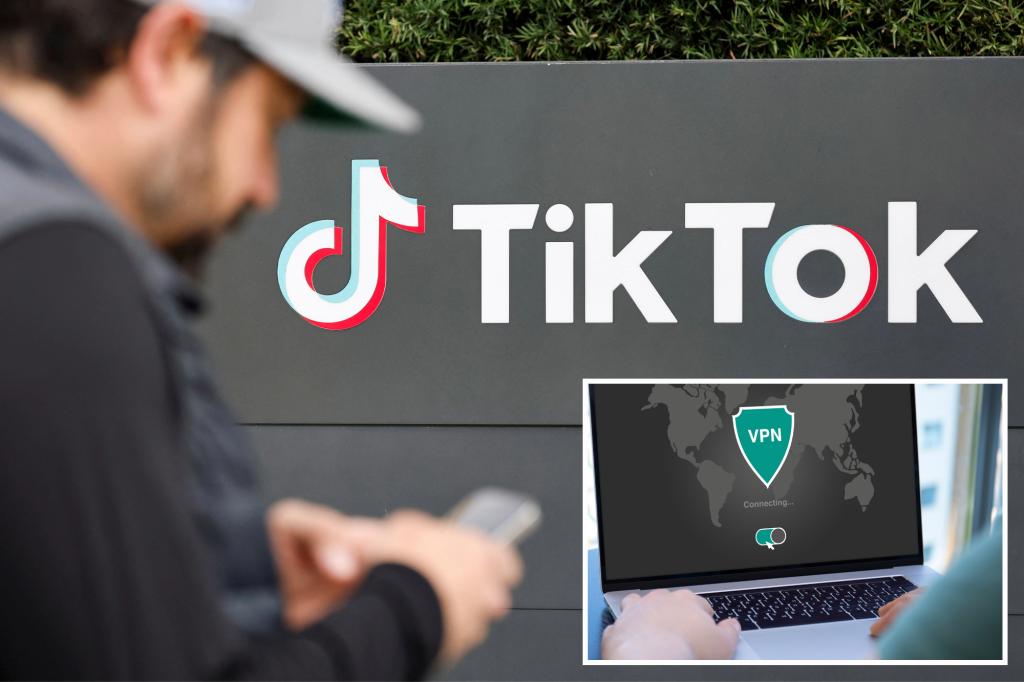The abrupt shutdown of TikTok in the United States has left millions of American users scrambling for solutions to bypass the ban, but their efforts have largely been thwarted by the app’s robust restrictions. While Virtual Private Networks (VPNs) are typically effective in circumventing geographical restrictions on internet access, TikTok’s ban has proven resistant to this common workaround. Users across various social media platforms have expressed their frustration, reporting that even with a VPN activated, they are unable to access the app. This inability stems from TikTok’s proactive approach to enforcing the ban, seemingly tying access to the user’s account creation location rather than simply their current IP address. Even creating new accounts outside the US while using a VPN has proven ineffective for many users, suggesting a deeper level of restriction tied to US-based accounts. The widespread disappointment highlights the effectiveness of TikTok’s ban implementation, leaving users with few options for regaining access.
The decision by TikTok to cease operations in the US came after the app failed to comply with a Congressional mandate requiring its Chinese-owned parent company, ByteDance, to divest its stake by a specified deadline. Instead of complying with the law and selling its US operations, TikTok opted for a complete shutdown, effectively barring access to its 170 million American users. This move contrasts with earlier proposals by former President Trump, who had suggested a potential pause on the ban pending negotiations for a partial US ownership takeover. However, Congressional supporters of the ban remained firm in their stance, insisting that TikTok could only return to the US market if it was entirely decoupled from Chinese ownership. This firm stance underscores the underlying national security concerns that fueled the ban, primarily focusing on the potential for data access and influence by the Chinese government.
The effectiveness of TikTok’s ban and its resistance to VPN circumvention mirrors the app’s approach in other regions with restrictive internet policies, notably Hong Kong. Following the implementation of national security laws in Hong Kong, TikTok withdrew its services from the region, demonstrating a similar proactive approach to avoiding potential conflicts with governmental regulations. Furthermore, TikTok is already banned in mainland China, where a similar app called Douyin, tailored to comply with Chinese regulations, operates instead. This localized approach further exemplifies ByteDance’s strategy of adapting to specific regional requirements, even if it means completely withdrawing services where compliance proves too challenging. The parallel between the Hong Kong and US situations highlights TikTok’s willingness to prioritize compliance with local laws, even if it results in significant market loss.
The frustration experienced by American users highlights the significant cultural impact of TikTok within the country. The app’s popularity, particularly among younger demographics, has led to its integration into various aspects of online culture, from entertainment and social interaction to content creation and even political discourse. The sudden absence of this platform has left a void, prompting users to desperately seek alternative means of access. The widespread attempts to utilize VPNs underscore the depth of user engagement and the desire to maintain access to the platform’s unique features and community. The ban’s impact extends beyond individual users, affecting content creators who rely on the platform for income and businesses that utilize it for marketing and engagement.
The legal battle surrounding TikTok’s ban culminated in a unanimous Supreme Court decision upholding the Congressional law mandating divestment or shutdown. This legal affirmation solidified the ban’s authority and effectively closed any remaining avenues for TikTok to continue operating in the US under its current ownership structure. The Supreme Court’s decision reflects the prevailing concerns regarding data security and potential foreign influence, effectively prioritizing national security interests over the economic and social impacts of the ban. This legal victory for proponents of the ban signals a broader trend of increased scrutiny of foreign-owned technology companies and their potential impact on national security.
The TikTok ban serves as a significant case study in the intersection of technology, national security, and international relations. It highlights the increasing complexities of regulating global technology platforms, particularly those operating in politically sensitive contexts. The ban also underscores the challenges posed by data privacy concerns in an increasingly interconnected world, where the flow of information across borders raises complex questions about national sovereignty and security. The long-term implications of the ban remain to be seen, but it undoubtedly sets a precedent for future regulatory actions concerning foreign-owned tech companies operating within the US. The ban also raises questions about the future of online platforms and the potential for greater fragmentation of the internet based on national boundaries and regulatory frameworks.

